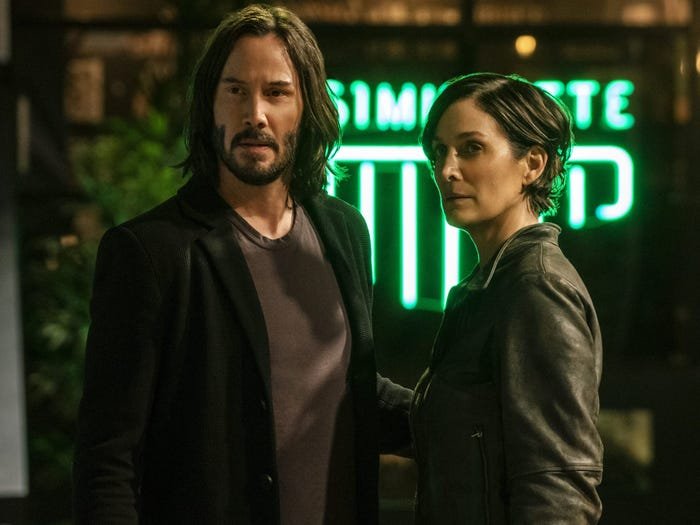I have always contended that in the Matrix franchise Laurence Fishburne's Morpheus functioned as the soul of that series. Both in-and-out of the context of that franchise he was our gateway into the faith as well as a fundamental grounding rod of all of the film's large and sometimes confusing themes. Without him that series does not exist in any way -in the way that it exists to us now. It is in that lack of presence, of power, of earnesty, of love, that something is lost in this film and you can feel it again, both in the context of the film and out of it. Lana knows..there is a meta recognition of this loss in the film, it’s as if even before they sat down to write, before they saw the first dailies they felt that loss and it is written into the film, and into its imagery, and it hovers above every action, every sequence. Yahya Abdul for his part gives it a brave try, and fares damn well in another wonderfully creative resurrection, but it is no fault of Waschowski, Yahya, or the idea, it is simply the fact of the power, resonance, the massive brilliance of the actor that made the character as much an icon of cinema as is its lead and arguably more. In that way, the loss of Morpheus represents the ghost of the central tension of this film not only in how do we resurrect dead things, but how do we live with their death. What Lana gives us is a fun, funny ( this movie is actually really really funny) well thought out action movie that doesn’t bother trying to answer this, and instead deals with it, and what we get is this side of Mad Max Fury Road one of the best resurrections of a seemingly dead franchise we've seen, and proof that Judd Crandall was right sometimes dead is better..Sometimes.


